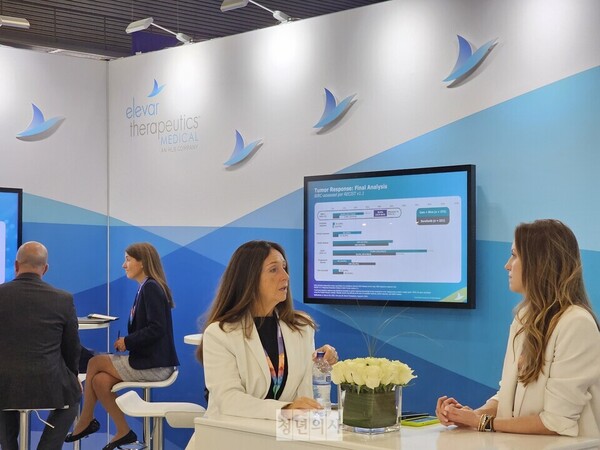HLB has resubmitted its license application for liver cancer drug candidate rivoceranib to the U.S. Food and Drug Administration (FDA), drawing keen attention from industry watchers to its results.
HLB said Monday that its U.S. subsidiary Elevar Therapeutics and its Chinese partner Jiangsu Hengrui Pharma have submitted an application for reexamining its liver cancer drug candidate rivoceranib combined with camrelizumab to the FDA last Friday, local time.
HLB’s CMC (chemistry manufacturing & control) supplementing process was completed four months after the company received the FDA's CRL (complete response letter) on May 16. According to the company, the full-scale new drug review process has resumed.
In the previous review, the FDA did not raise any issues with the efficacy and safety of rivoceranib plus camrelizumab and only requested CMC-related improvements. Jiangsu Hengrui Pharma quickly addressed these issues, and the FDA recommended submission without further request.
The submission also included patient survival data (median overall survival (mOS) of 23.8 months) presented at the 2024 American Society of Clinical Oncology (ASCO) meeting. The FDA is expected to notify the company within a month of the review period, and depending on the level of review, a decision is expected as early as November 20 2024 or March 20 2025 at the latest.
“We are pleased to submit the reapplication dossier within the promised timeframe based on the active cooperation of both parties,” said Elevar Therapeutics CEO Chong Sae-ho. “We are confident of approval and will continue to proceed with the production of the new drug and preparations for large-scale marketing in the U.S. according to the established schedule.”

Liver cancer treatment experts Korea Biomedical Review met on the sidelines of the European Society for Medical Oncology Annual Congress (ESMO 2024) on Monday last week (local time) also suggested that the combination of rivoceranib and camrelizumab could be a new option for treating liver cancer.
“The combination of rivoceranib and camelizumab was superior to sorafenib and showed positive results, with a very long mOS,” said Lorenza Rimassa, associate professor of medical oncology at the University of Humanaitas in Italy, referring to CARES-312, a phase 3 trial evaluating the treatment effectiveness of rivoceranib plus camrelizumab.
The trial mainly included Asians, with only 17 percent of patients from Western countries. It is currently only approved in China, but the company is seeking approval in other countries. According to the Italian oncologist, the combination of the two drugs may be approved in other countries because it works so well.
“A little concerning is that 80 percent of patients experienced grade 3 or 4 adverse events, mainly hypertension, which was manageable. Compared to other options, it has a less favorable safety profile. Still, it could be considered a treatment option in some countries,” Professor Rimassa added.
Related articles
- [BIO USA 2024] FDA rejection of HLB's rivoceranib approval linked to impact of Biosecure Act?
- Jiangsu to ‘reapply for US approval of rivoceranib combo therapy ASAP’
- HLB shares plummet following FDA rejection of liver cancer drug approval
- HLB exempted from submitting rivoceranib pediatric clinical plan in Europe
- Hepatitis B patients with liver stiffness have a far higher risk of liver cancer
- HLB Group acquires enzyme producer GenoFocus
- FDA regulations evolve as science changes: Elevar Therapeutics COO
- New study spurs HLB to expand indications for its liver cancer drug rivoceranib
- HLB Panagene's companion diagnostic for Pfizer’s lung cancer drug Xalkori wins approval
- HLB Group Chairman Jin buys HLB Innovation stock worth ₩280 million
- HLB scores key ESMO endorsement for liver cancer drug as FDA decision nears
- HLB slams FDA rejection rumors as stock swings; acquires peptide maker ANYGEN for ₩60 bil.
- FDA rejects HLB’s liver cancer drug again over Hengrui’s manufacturing failures, giving BMS upper hand
- HLB eyes July comeback as FDA hits liver drug with 2nd CRL over Chinese plant

